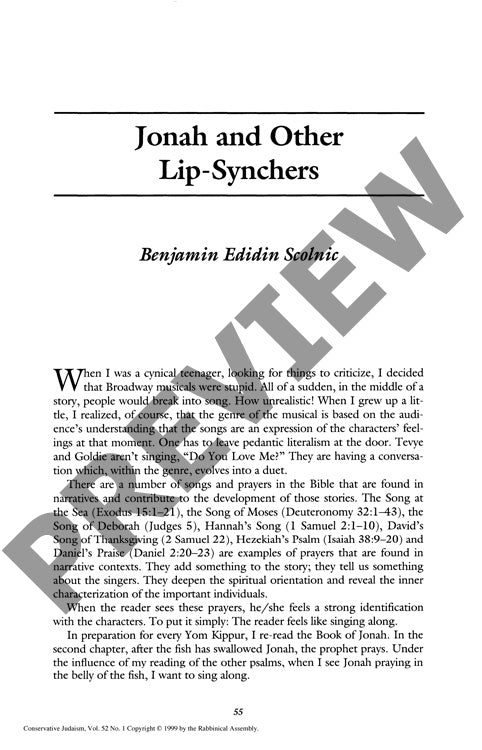Jonah and Other Lip Synchers
Couldn't load pickup availability
When prophets sing songs of thanksgiving in biblical narratives, their words typically reflect genuine spiritual transformation - but Jonah's psalm stands as a striking exception. The incongruity between Jonah's eloquent prayer in Chapter 2 and his persistent reluctance throughout the broader narrative has long puzzled biblical scholars, raising questions about both the psalm's authenticity and its literary purpose. Through close textual examination of linguistic patterns, thematic elements, and narrative function, this research reveals that rather than representing a mere editorial insertion, the psalm operates as intentional irony - a form of spiritual "lip-synching" that exposes the prophet's superficial engagement with divine mercy. Analysis of the psalm's placement and content, compared with other biblical narrative songs, demonstrates how its apparent contradictions serve to critique empty ritualism. The thanksgiving tone, contrasted with Jonah's continued resistance to his mission, creates a sophisticated commentary on the gap between mechanical prayer and genuine spiritual change. These findings hold particular relevance for Yom Kippur observance, challenging readers to examine whether their own ritual prayers reflect authentic acceptance of the universal compassion and mercy that the narrative ultimately demands.

More Information
-
Physical Description
-
Publication Information
Published 1999
ISBN
-
Publication Credits
Benjamin Scolnic

